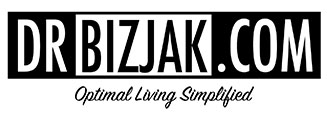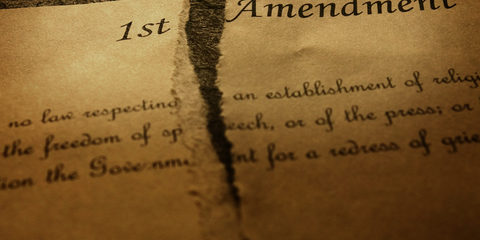We know censorship is prevalent in many countries that we don’t look kindly upon, and many would argue that it does not happen in our country. But in reality, we’d be naïve to think that censorship has not been happening for decades, if not centuries. I couldn’t tell you the history of censorship, but now know that it is happening right now like never before in history (or least in U.S. history).
Until this past year or so, I can’t say that I have ever received an article, post, or video that would not open because it was “pulled down.” Early on in the pandemic, I had seen a video posted by a medical doctor that I thought was very interesting and thought-provoking. A friend to whom I forwarded it said that he could not open it, that it had been pulled down. When I went back to check, it had indeed been removed.
I was dumbfounded, because the information in that video was neither extreme nor dangerous. And the person posting it was a highly credentialed, well-respected medical professional.
The idea that so-called “fact checkers” in companies like Facebook, Twitter, and YouTube are able to decide what information gets posted and what gets pulled down is mind-blowing. And what is more interesting is that, depending on where you stand in your political, medical, philosophical, and maybe even religious beliefs, you’ll either harshly criticize this censorship, or praise it.
I am not writing to try to convince you of anything regarding this pandemic, but urging you to be aware of how dangerous censorship can be. Here again, depending on your beliefs about the current situation, you’ll think that sentence is either great or it is ridiculous. You’ll think it’s great if it is aligned with your current beliefs and world views, but what about when censorship starts to infringe upon those beliefs and word views? You see, it might seem okay when it serves you and your position, but there will be a time when it doesn’t. And only then will you see how catastrophic, dangerous, and non-American it really is.
There’s a doctor and researcher named Robert Malone. You likely have not heard of him because he won’t be put on any of the mainstream news outlets. He is often described as the inventor of mRNA technology. Like most major scientific breakthroughs, there is seldom one person that can stake claim to its discovery. However, he is a legitimate scientist, did early work on the mRNA technology, and I believe could feasibly be named as a candidate for the Nobel Prize.
A recent article in The Atlantic (theatlantic.com), titled The Vaccine Scientist Spreading Vaccine Misinformation, by Tom Bartlett, (click here to read it) caught my attention in regards to Dr. Malone. I had seen Dr. Malone in several videos, but only in what author Bartlett would describe as the “alternate media universe.” I found what Dr. Malone had said to be interesting. He posed what I thought were good questions and points, and he shared opinions based on his medical and scientific expertise.
Prior to this, I knew that most of what was posted on social media with him in it was taken down, tagged as misinformation, or violating “community guidelines.” This led me to assume he was overstating his credentials, giving dangerous medical advice, or was an extremist of some kind. It wasn’t until reading that article in The Atlantic that the massive censorship that is going on right now really hit me. By the title of the article, you can assume that the author is aiming to shed light, and facts, on why the information Dr. Malone is spreading is misinformation, and why no one should listen to him. To be honest, after reading the article, I’m not sure if he helps, or hinders, Dr. Malone’s case.
For me, I gained a greater appreciation for this guy, was more impressed with his credentials and contributions, and was more concerned than ever that someone like him is being censored. I also realized that he is getting thrown into what is being called the “anti-vaxx” camp, not because he is anti-vaxx (he definitely is not), but because of the platforms that host him. And I realized he didn’t seek out these alternative platforms to share his thoughts and concerns, but that these platforms were the only ones giving him the airtime.
You’ll likely agree that no one should give airtime to anyone making radical claims that could harm lives, but after reading that article in The Atlantic, I realized that his claims are not radical nor dangerous. I believe Dr. Malone is functioning like many doctors and scientists, or at least functioning the way they should be. He dedicated his life to research into mRNA and its potential use in vaccine development, has worked for pharmaceutical companies as a vaccine consultant, and even got the Moderna vaccine himself.
His primary concerns about the vaccine, according to the author Bartlett, are “mostly with their expedited approval process and with the government’s system for tracking adverse reactions.” These are not radical concerns, but seem scientific and legitimate to me. You can read his other concerns in that article.
The bottom line is that we have to be able to ask questions, have some healthy skepticism, and be able to debate any new technology in any area. This doesn’t make someone anti-anything, but rather a thinking, concerned member of society. Improved delivery, safety, and efficacy of all technological breakthroughs has depended on the scrutiny of other professionals within that field. Censoring those experts and professionals could not only hinder progress, but could be dangerous… oh, and not to mention unconstitutional.
If anything written here upsets you, please re-read it. And read that article in The Atlantic. And know that this is not an attempt to give medical advice, or to change your views on the pandemic or vaccines, but to share a concern we should all have about keeping people from speaking. Of course, there are extremists and radicals out there. And yes, they could be harmful. But the views, opinions, and questions posed by experts like Dr. Malone cannot be kept from the public. While Bartlett rips Dr. Malone for “egging on vaccine hesitancy,” I believe its doctors and scientists like him who believe wholeheartedly in the potential for vaccines, but just want to make sure we get it right.







